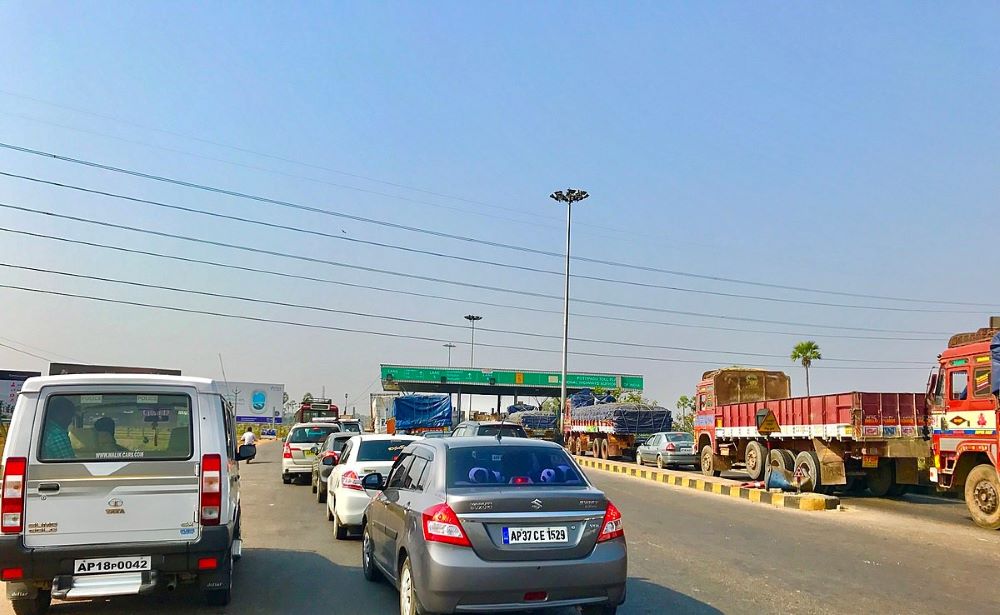Adi S
Supreme Court on 12th of April 2021, headed by Jst. Uday Umesh Lalit, Jst. Indira Banerjee and Jst. K. M. Joseph in the matter of IFCO Tokyo General Insurance Co versus Pearl Beverage Ltd, In an appeal filed by the insurance company against the order of National Consumer Dispute Redressal Commission (NCDRC) Which ordered that exclusion clause “driver under the influence of liquor substance” could not be claimed as basis to reject insurance claim since under the influence of Liquor is different from intoxication.
A Porsche which was insured with the appellant insurance company was cited by a police constable on patrolling duty being driven rash and negligently and later at 2:30 AM close to the India gate area the car rammed into an electric pole and the wall of public park and turned upside down.
FIR was drawn against the driver under section 279/427 Indian Penal Code and under section 185 of Motor Vehicle Act. The driver respondent had pleaded guilty to the charge under section 279 of IPC for furthering the plea bargaining where the Magistrate Court was pleased to impose a fine of rupees 1000.
The Respondent company which had insured the car with the Appellant Insurance company, made an insurance claim for the damage occurred to the car and the claim was rejected on the grounds of exclusion clause prohibiting the driver from driving the vehicle under the influence of liquor substance.
A consumer complaint was filed under Section 17 of Consumer Protection Act before the State Consumer Commission by the instant Respondent. The State Commission under the principle of Res ipsa loquitur(the face of the facts in Case) held that the claim was rightly rejected.
On an Appeal made to the National Consumer Dispute Redressal Commission (NCDRC) it was propounded that under the jurisprudence of medico toxicology BAC (Blood Alcohol Content) test plays a evidentiary role, only once such test goes on to prove the presence of more than 30 mg alcohol per 100 units of blood the person be held liable under section 185.
Thus the National Consumer Commission extending the implication of non conviction under section 185 came to a conclusion that the above said exclusion could not be claimed. Also, no breath synthesiser test or blood alcohol test was conducted upon the respondent which could prove an increased content of alcohol concentration in blood.
The Commission discussed in detail the jurisprudence pertaining to section 185 by drawing analogy from US and UK precedents came to a conclusion that the blood-alcohol concentration based approach of UK was applicable.
Supreme Court analysed the conclusion reached at by the NCDRC and appreciated the difference between a Criminal and Civil burden of proof where under the criminal law prosecutor needs to establish the guilt beyond reasonable doubt, while in civil law one needs to establish preponderance of probability. Supreme Court further propounded that since an insurance contract is a civil dispute at its root the burden equivalent of Section 185 of MV Act cannot be read into the same.
The Supreme Court succinctly pointed out the fact that despite the absence of breath synthesiser or blood test report, taking into consideration the principle of Res ipsa loquitur, it could be very well determined that the patrolling police constable reported the car to be driven in a rash and negligently manner, medico legal case sheet also stated a smell of alcohol in breath of driver and also taking into consideration the act of pleading guilty for the charge under section 279 of IPC and the driver having had alcohol where at 2:30AM near the India Gate where no other animal or person came before the car to justify the event of it being rammed into the wall and turning upside down, the driver had to be under the influence of alcohol.
The mere reason of non-performance of test to confirm the above said conclusion would not defeat the right of the insurance company to reject the claim under the insurance contract.
Supreme Court thus set aside the order of National Consumer Dispute Redressal Commission (NCDRC) and allowed the appeal with no cost. Therefore allowing the insurance company to take the recourse of exclusion clause to reject the claim of Respondent Company.

